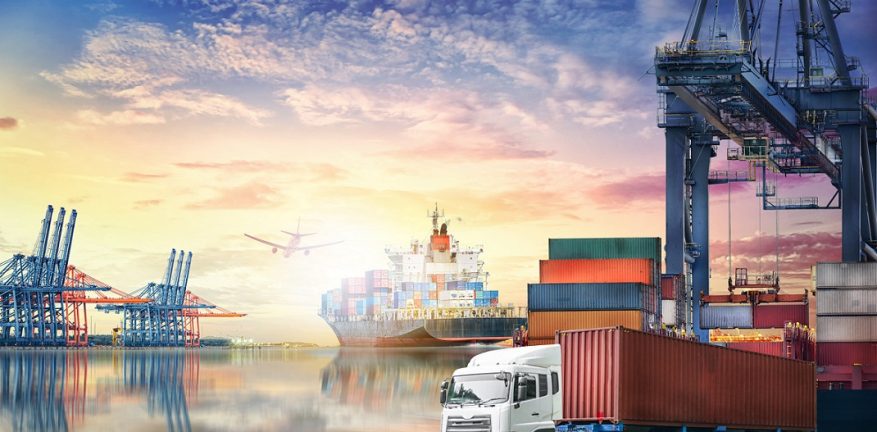Rise of E-Commerce Logistics and Navigating the Digital Frontier
In the fast-paced realm of contemporary commerce, the advent of e-commerce has ushered in a transformative era, redefining the way businesses and consumers interact. As the digital landscape expands exponentially, the rise of e-commerce logistics has emerged as a critical component in navigating this dynamic frontier. The traditional brick-and-mortar model has evolved into a digital marketplace where consumers expect seamless and swift deliveries. This paradigm shift has compelled companies to revolutionize their logistics strategies, giving birth to a new era of efficiency and innovation. E-commerce logistics, at its core, is the intricate network of processes and systems responsible for the seamless movement of goods from the point of origin to the end consumer. The digital frontier demands speed, precision, and transparency, forcing logistics providers to rethink and revolutionize their supply chain models. Advanced technologies, such as artificial intelligence, machine learning, and data analytics, play pivotal roles in optimizing routes, predicting demand patterns, and enhancing overall operational efficiency. The result is a logistics ecosystem that not only meets the evolving needs of consumers but also anticipates them.

The logistics landscape is further shaped by the intensifying competition among e-commerce giants striving to outperform one another in the race for customer satisfaction. In this digital frontier, the ability to deliver products swiftly and reliably has become a key differentiator. Consequently, companies are investing heavily in last-mile delivery solutions, utilizing drones, autonomous vehicles, and innovative tracking systems to ensure real-time visibility into the delivery process. The rise of e-commerce logistics is, therefore, intertwined with technological advancements that redefine the speed and reliability of supply chains. Moreover, the geographical reach of e-commerce has expanded globally, necessitating logistics providers to establish a robust international presence. The digital frontier knows no borders, and e-commerce logistics companies are now required to navigate complex international regulations, customs processes, and diverse consumer preferences. Strategic partnerships and collaborations have become integral to overcoming these challenges, enabling logistics providers to offer end-to-end solutions that span the entire supply chain.
However, as e-commerce logistics experiences exponential growth, it also faces environmental scrutiny. The carbon footprint associated with the increased movement of goods demands sustainable solutions logistics cost. E-commerce companies are responding by embracing eco-friendly practices, from optimizing delivery routes to exploring green transportation alternatives. Navigating the digital frontier is not merely about speed and efficiency; it is also about responsibility and sustainability. In conclusion, the rise of e-commerce logistics is emblematic of the profound transformations underway in the business landscape. This digital frontier demands a sophisticated and adaptable approach to supply chain management. As logistics providers continue to harness cutting-edge technologies, expand their global reach, and prioritize sustainability, they will not only meet the demands of the digital age but also shape the future of commerce in an increasingly interconnected world.


 The allure of Muay Thai Excellence Unleashed lies not just in the promise of skill enhancement but also in the camaraderie forged among participants. The training camp becomes a melting pot of diverse backgrounds and experiences, united by a shared passion for Muay Thai. Friendships are forged in the crucible of training, creating a support system that extends far beyond the duration of the program. As the sun sets over the Thai horizon, casting a warm glow on your sweat-soaked training gear, you will carry with you not just improved skills but a transformed mindset. Muay Thai Excellence Unleashed is more than a training program; it is a gateway to self-discovery, cultural immersion, and the forging of bonds that transcend borders. Unleash your potential, embrace the Muay Thai way, and emerge from the experience not just as a participant but as a champion in the making.
The allure of Muay Thai Excellence Unleashed lies not just in the promise of skill enhancement but also in the camaraderie forged among participants. The training camp becomes a melting pot of diverse backgrounds and experiences, united by a shared passion for Muay Thai. Friendships are forged in the crucible of training, creating a support system that extends far beyond the duration of the program. As the sun sets over the Thai horizon, casting a warm glow on your sweat-soaked training gear, you will carry with you not just improved skills but a transformed mindset. Muay Thai Excellence Unleashed is more than a training program; it is a gateway to self-discovery, cultural immersion, and the forging of bonds that transcend borders. Unleash your potential, embrace the Muay Thai way, and emerge from the experience not just as a participant but as a champion in the making.

